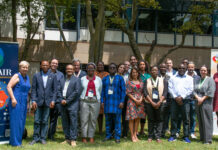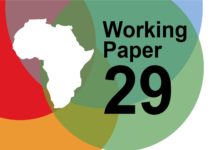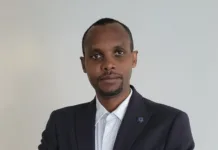Open AIR’s Northern African hub, the Access to Knowledge for Development Center (A2K4D) at the American University in Cairo, is conducting research on open data, AI and development in the Global South. A2K4D’s 4IR and AI activities to date include giving presentations, participating in workshops, writing blog posts, and producing publications.
For example, in May 2018, A2K4D’s Founding Director, Open AIR Co-Principal Investigator (PI), and Open AIR’s metrics Theme Leader, Nagla Rizk participated in the AI for Good Summit in Geneva. Her presentation, entitled “Implementation of AI to advance the SDGs: Data for Good”, was on a panel that was among a series of simultaneous sessions on “Implementations of AI to Advance the SDGs”. Bringing the Egyptian perspective to global discussions, Rizk drew on A2K4D’s interdisciplinary research to explore how AI can offer solutions to global development challenges. Rizk’s argument focused on the question of how AI could be a force for good for the entire globe and not just monopolized in the hands of the global north or a powerful few. She gave examples from A2K4D’s and partners’ work on open data as well as cited empirical research conducted at A2K4D on devising alternate measures of knowledge and innovation in Africa.
In October 2018, at A2K4D’s Eighth Annual Workshop, Open AIR Senior Researcher, Nagham ElHoussamy, moderated a session entitled “Ethics, Inclusion, and the Governance of Artificial Intelligence”. This panel was part of the activities of the Inclusive Internet Governance Initiative (IIG), which is a joint initiative between A2K4D and Internet Masr, a local NGO. The main aim of this project is to conduct a series of activities and discussions to highlight the importance of internet governance for Egypt. The project focuses on identifying priorities of internet governance and establishing a platform for interested members of civil society, the private sector and academia. With these activities, the project hopes to take the first steps towards an internet governance forum for Egypt.
Within A2K4D’s Internet Governance activities, over the past year they held a public forum with AI stakeholders in Egypt. The keynote speaker, and a participant on the panel, was the Egyptian Communications and Information Technology Minister’s Advisor for Artificial Intelligence. A2K4D also conducted a review of AI strategies in eight countries, to determine which would be the most aligned with Egypt’s needs. This research is currently in the analysis phase and we look forward to publishing our results. In addition, in early 2019, Rizk submitted a chapter entitled Artificial Intelligence and Inequality in the Middle East: The Political Economy of Inclusion for the Oxford Handbook of Ethics of AI. This handbook will be published in late 2019, with Rizk’s chapter looking at the various challenges, opportunities, and tensions facing the equitable development of AI in the MENA region in the aftermath of the Arab uprising of 2011. Based on the research for this chapter, Rizk was invited to speak at the workshop “Translating Research on AI’s Impacts into Human Rights Advocacy” in May 2019 at the Berkman Klein Center for Internet & Society at Harvard University. Additionally, Rizk discussed the chapter’s findings at a talk entitled, “Artificial Intelligence and Inequality in the Middle East: The Political Economy of Inclusion”, hosted by the University of Toronto’s Center for Ethics.
Further, as a means of integrating timely topics into her teaching, in Spring 2019, Rizk has introduced a new graduate course to AUC’s Economics Department entitled, “New Technologies, Networked Economies and Inclusive Development”. AI and data are some of the main themes of this course and many of the course’s readings revolve around these subjects.
A2K4D’s forthcoming research plans delve further into the topics of 4IR and AI. In collaboration with partners at the Leverhulme Centre for the Future of Intelligence (CFI) at the University of Cambridge, UK, A2K4D will jointly host a Global Artificial Intelligence Narratives (GAIN) Workshop for the Middle East and North African region in October 2019. The joint workshop will be the fifth in the GAIN series, where workshops are hosted in different regions in an ambitious effort to examine how AI is perceived in different regions and cultures around the world. In addition, ElHoussamy and Senior Researcher, Nadine Weheba, are currently conducting research exploring law and policy governance structures of AI in Egypt.










